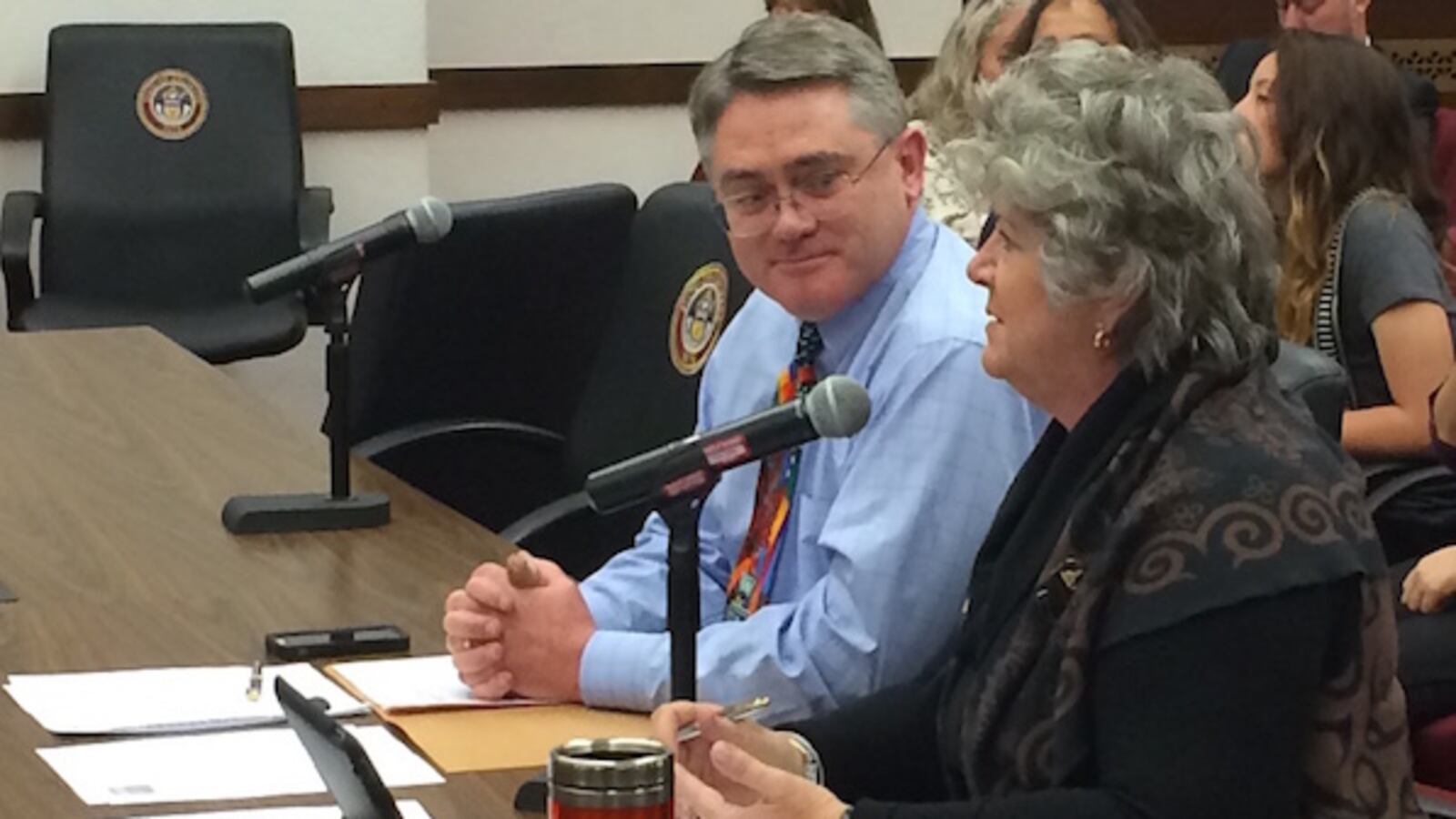The Senate Education Committee gave 8-1 approval Thursday evening to a bill that would codify parents’ right to opt students out of standardized testing and also forbid penalizing districts, schools, and teachers for low participation rates.
The vote was the first official action on any testing-related bill this session, and the debate and testimony offered a taste of future debates on the issue.
Discussion on the seemingly simple four-page bill also crystalized some key questions that remained unanswered after the committee vote, including:
- Will passage of the bill blow up the state system for rating districts and schools because of incomplete testing data and the fact that the state couldn’t penalize districts for low participating rates?
- Could the lack of penalties for low participation lead schools and districts to “game the system” by covertly encouraging certain groups of students to opt out?
- Would the bill as written inadvertently prevent teachers from lowering a student’s course grade because the student didn’t take a test?
Those issues came to the fore during discussion of amendments proposed by Democratic Sens. Mike Johnston of Denver and Andy Kerr of Lakewood during the second half of the four-hour session.
Johnston, a main architect of key education reform laws in recent years, was the odd man out in the 8-1 bipartisan vote to send the bill to the Senate floor.
Speaking to Chalkbeat Colorado after the vote, Johnston called the bill “an absolute catastrophe waiting to happen.”

A key Johnston amendment would have allowed the state to continue using test scores and test participation to rate schools and districts, while holding teachers and students free of any penalties. He also proposed tracking which kinds of students opted out of testing. And a third amendment would have protected high-participation districts from any loss of federal funds if the state drops below required participation levels.
The bill would require districts to allow parents to opt out of any standardized tests required by the state or local districts and bans any penalties for students, teachers, principals or schools for low participation.
State and federal policy mandates that 95 percent of students participate in state testing, and Colorado imposes a one-step drop in a district’s accreditation rating if participation drops below 95 percent on two or more tests.
Johnston politely told prime sponsor Sen. Chris Holbert, R-Parker, “You are endeavoring unintentionally to tear down 10 years of work on the state accountability system. … You are knocking down a barn we built in the last decade, and you’ve got to put up something in its place.”
Holbert said, “It comes down to freedom and liberty … when it comes to our kids we have the right to make this choice.”
Earlier in the debate, Holbert said the way to ensure high test participation is to “build a better assessmnt tool that parents can trust.”
Holbert and other bill supporters argue that it’s necessary to prevent intimidation of bullying of parents by teachers and administrators who fear lowered school ratings if test participation drops. With that fear removed, supporters argue, school officials won’t feel the need to pressure parents.
The only amendment approved by the committee was a minor proposal by Kerr to require that schools inform parents about the “purpose and use” of statewide tests in addition to informing them about their opt-out rights, as the bill’s original language proposes.
Kerr withdrew an amendment that would have clarified the issue of consequences for students who don’t take class tests required for a course grade. The bill refers to no penalties for “standardized” tests, and that concerns Kerr because districts sometimes give standard tests across schools as course requirements. That issue likely will resurface later.
Another amendment intended to penalize school officials if they encourage students to opt out was defeated.
“The data is abundantly clear that there are schools in the state of Colorado that are urging students to opt out,” Johnston charged, without naming any districts.
The bill has bipartisan support and 31 cosponsors, a significant number in a 100-member legislature. The Senate sponsors are Holbert and Sen. Nancy Todd, D-Aurora.
The measure has wide support among interest groups including teachers unions and school districts, plus from anti-testing activists. Education reform groups oppose it. Those divisions were evident in testimony Thursday.
In the end, only one vote may count. If the bill passes the legislature in its current form, some observers expect Gov. John Hickenlooper to veto it.
Todd alluded to that possibility in her opening remarks, saying, “We’re really looking forward to having great conversations with the governor.”
Read the bill text here.
SB 15-223 is only the first of several testing-related bills pending at the Capitol. Get more information below.
Testing Bill Tracker
Click the bill number in the left column for more a more detailed description, sponsors and other information. Click the link in the Fiscal Notes column at the right for a bill’s description and an estimate of potential state costs.


